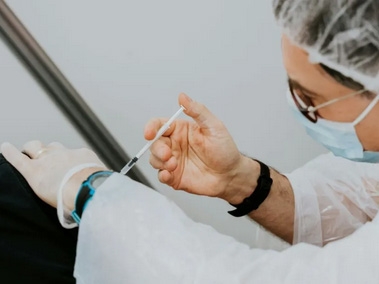Seasonal respiratory infections, such as colds, flu, and COVID-19, are common during the colder months, especially in urban areas like London. These infections can significantly impact public health, particularly for vulnerable populations, including the elderly and those with pre-existing health conditions. Understanding prevention and treatment strategies is crucial to reducing incidence and managing symptoms effectively.
Types of Seasonal Respiratory Infections in London
1. Common Cold:
– Caused by various viruses, primarily rhinoviruses.
– Symptoms include a runny nose, sore throat, cough, and sneezing.
2. Influenza (Flu):
– Caused by influenza viruses (types A and B).
– Symptoms are more severe than the common cold, including high fever, body aches, fatigue, and chills.
3. COVID-19:
– Caused by the SARS-CoV-2 virus.
– Symptoms range from mild to severe, including fever, cough, loss of taste/smell, and difficulty breathing.
4. Bronchiolitis and RSV:
– Primarily affects infants and young children.
– Symptoms include wheezing, coughing, and difficulty breathing.
5. Chest Infections:
– Can occur following a cold or flu, leading to pneumonia or bronchitis.
– Symptoms may include chest pain, persistent cough, and fever.
What are the prevention strategies for seasonal infections?
1. Vaccination
– Flu Vaccine: Get the annual flu vaccine, which is particularly recommended for high-risk groups, including the elderly, pregnant women, and individuals with chronic conditions.
– COVID-19 Vaccination: Stay updated with COVID-19 vaccinations and boosters as recommended by NHS.
2. Good Hygiene Practices
– Hand Hygiene: Wash hands frequently with soap and water or use hand sanitizer, especially after being in public spaces.
– Respiratory Etiquette: Cover your mouth and nose with a tissue or elbow when coughing or sneezing, and dispose of tissues properly.
– Avoid Touching Face: Minimize touching your eyes, nose, and mouth to reduce the risk of infection.
3. Staying Indoors When Sick
– If experiencing symptoms, stay at home to prevent spreading infections to others.
4. Environmental Measures
– Ventilation: Ensure proper ventilation in homes and workplaces to reduce airborne pathogens. Open windows when possible, even in winter.
– Humidity Control: Use humidifiers to maintain indoor humidity levels between 30-50%, as dry air can irritate the respiratory tract.
5. Avoid Crowded Places
– Limit exposure to crowded areas, particularly during peak infection seasons, to reduce the risk of transmission.
What are the seasonal infection treatments available?
1. Home Remedies
– Rest and Hydration: Ensure plenty of rest and stay well-hydrated to help the body recover.
– Warm Liquids: Consume warm teas, broths, and soups to soothe the throat and alleviate congestion.
– Honey and Lemon: Natural remedies like honey and lemon can help soothe sore throats and coughs.
2. Over-the-Counter Medications
– Pain Relievers: Use medications like ibuprofen or paracetamol to reduce fever and alleviate body aches.
– Cough Suppressants/Expectorants: Choose appropriate medications based on symptoms—suppressants for dry cough and expectorants for productive cough.
3. Prescription Medications
– Antiviral Medications: For influenza, antivirals can be prescribed if started within the first 48 hours of symptom onset after through assessment.
– Antibiotics: Only prescribed for bacterial infections or if secondary infections occur.
4. Monitoring Symptoms
– Keep track of symptoms, and seek medical advice if conditions worsen or if high-risk individuals experience severe symptoms.
Seasonal respiratory infections pose a significant health risk in London, especially during colder months. By implementing effective prevention strategies, such as vaccination, good hygiene practices, and environmental measures, individuals can reduce their risk of infection. If infections occur, appropriate treatment and home care can facilitate recovery. Always consult healthcare professionals for guidance tailored to personal health needs.

